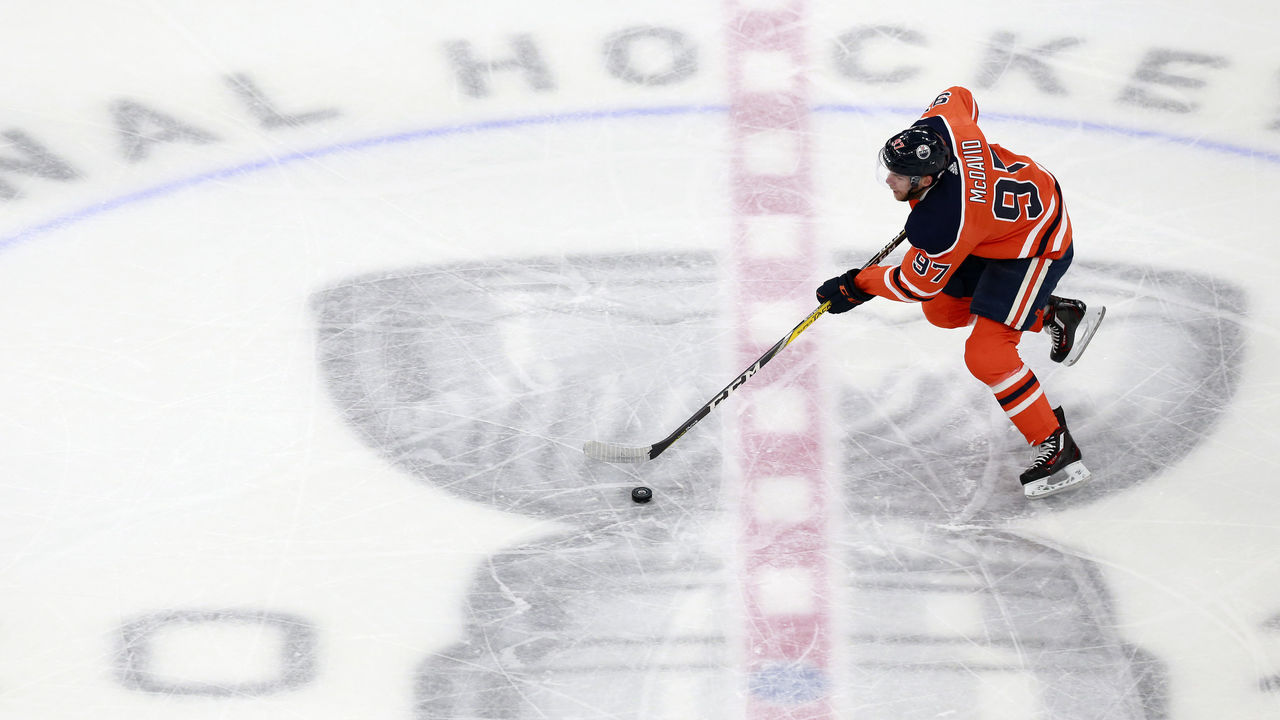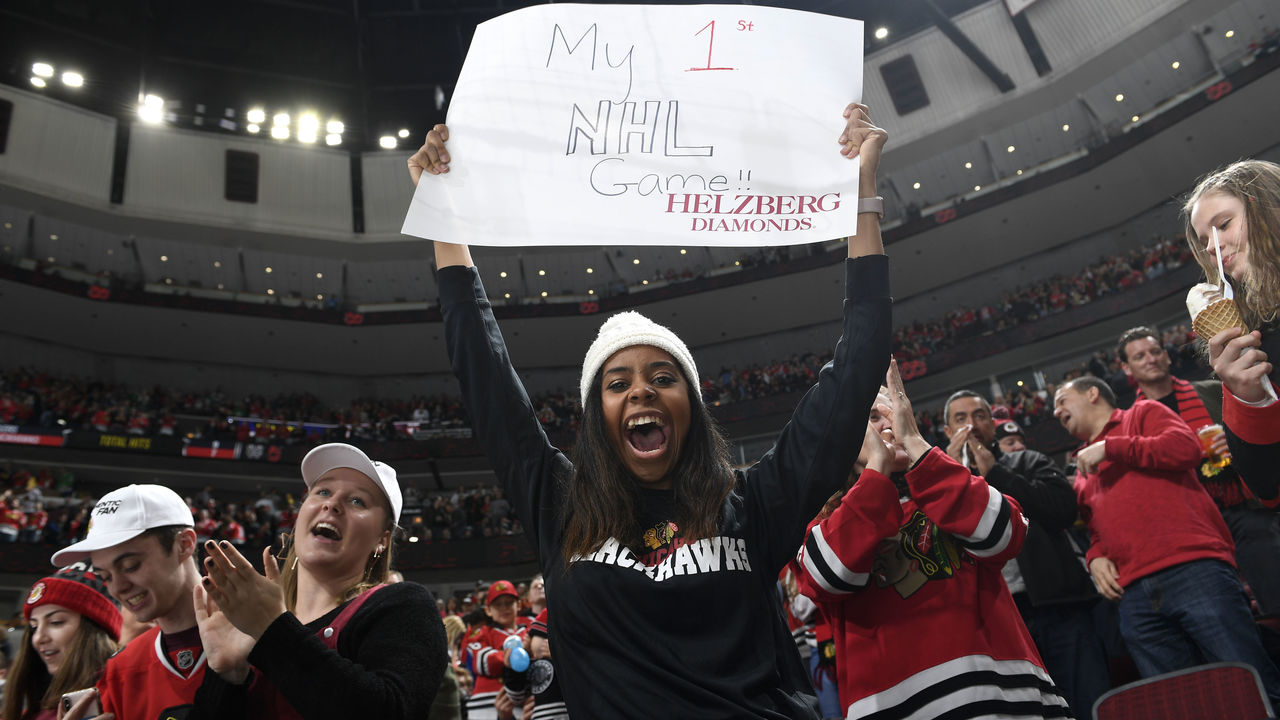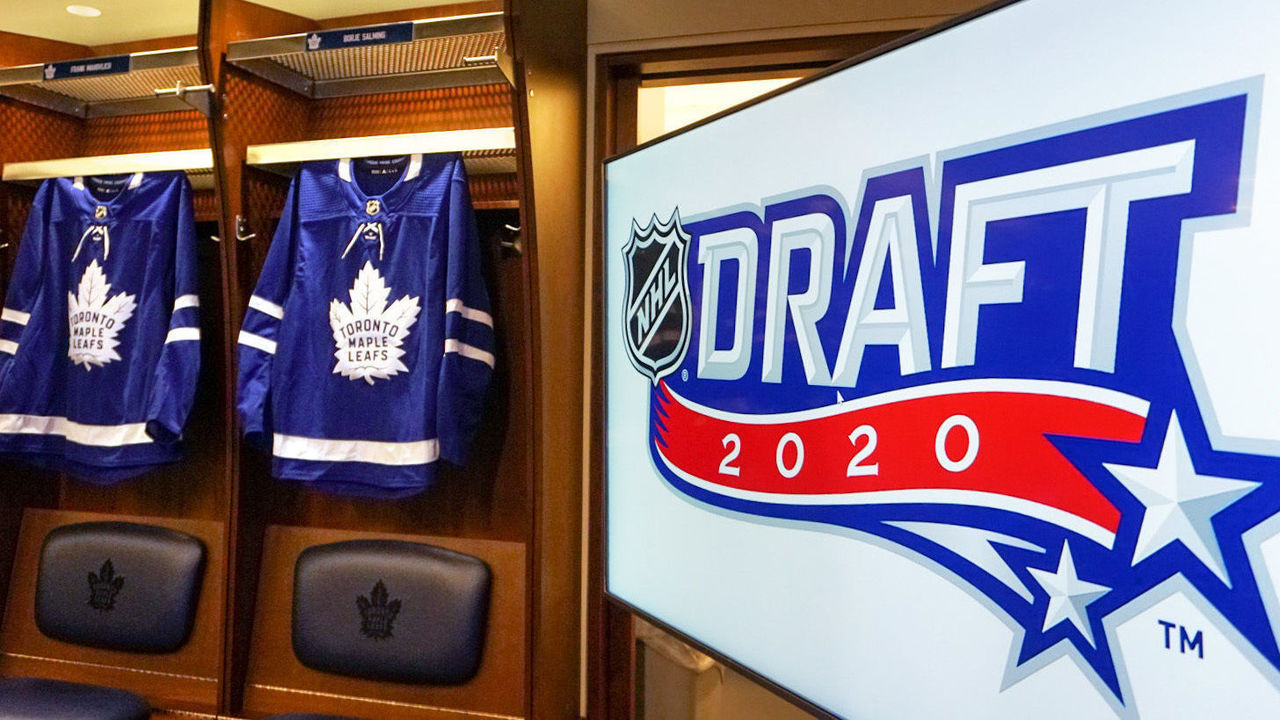Innovative hockey ideas, revisited: Is the Gold Plan a golden concept?
As we await word on the fate of the 2020-21 NHL season, theScore is revisiting innovative ideas from different corners of the hockey world. Consider this four-part series food for thought during a most unusual offseason. (Parts 2 to 4 will run Friday, Monday, and Tuesday.)
Adam Gold's idea about the NHL's draft order was hatched out of a moment of frustration back in March 2008. The regular season was nearly finished, the Steven Stamkos-headlined draft was approaching, and Gold - a die-hard St. Louis Blues fan - could only shake his head at the television.
"John Davidson shouldn't have to go on TV for an interview and have to say something like that," Gold recalls thinking as he watched the former Blues president promise fans their favorite hockey team wasn't losing on purpose.
That surreal but not entirely unique scene - an executive feeling compelled to publicly assure supporters that winning, not losing, remains the goal every night - led to Gold developing what's now known as the "Gold Plan," or as he's called it since it was first publicized, the "NHL Draft Order Based on Mathematical Elimination."
The premise is straightforward: rather than the league's worst teams entering a lottery each spring to determine the order of the upcoming draft, picks are doled out based on point accumulation starting when a team is mathematically eliminated from postseason contention. At the end of the regular season, the team with the most post-elimination points is awarded the first overall selection, followed by the team with the second-most, and so on.
What are the benefits and drawbacks of this idea? Let's investigate.
The case for the Gold Plan

The core objective is to rewire the incentive system for teams outside the playoff picture. In this scenario, all 82 games would matter to all 31 teams because the NHL would reward winning over losing, which, in turn, would discourage teams from tanking to chase higher draft-lottery odds.
"The value of a win should always be more than the value of a loss," Gold, a 36-year-old data scientist working in agriculture, told theScore. "A fan from any team could look at the schedule of remaining games and want to win each or any game remaining."
This mindset is in stark contrast with what the hockey world witnessed on March 26, 2015, when Buffalo Sabres fans were openly cheering for the opposing team, the Arizona Coyotes, during a late-season home game. The sparkling prize for finishing last that season was a 20% shot at the No. 1 draft pick, Connor McDavid. Sabres fans simply couldn't help themselves. (Of course, the last-place Sabres - who dropped that game in overtime - didn't end up winning the lottery. They picked another future star, Jack Eichel, at No. 2.)
"The second you start convincing someone to cheer against you, you're one step closer to losing them as a fan," former Coyotes captain and Gold Plan supporter Shane Doan told Sarah McLellan of AZ Central a year later.
Though the McDavid tankfest was an extreme example, there are legions of fans every year who come to a realization at some point in the second half of the season that their team's short-term ineptitude is better for the franchise's long-term outlook. So they cheer for penalties and goals against, losses, and losing streaks. And it's hard to blame them. The current system is closely linked to bottoming out in the standings, though it's also tempered by the luck of the lottery.
Case in point, the upstart New York Rangers in October made Alexis Lafreniere the first overall pick after winning the lottery with just 2.5% odds. Meanwhile, the Detroit Red Wings, who are in the middle of a substantial rebuild, had no incentive to improve their roster for or during the 2019-20 season. Yet, on draft weekend, Detroit selected fourth despite entering the lottery with a league-high 18.5% odds of claiming the No. 1 pick.
It was a miserable season for Red Wings fans, and Lafreniere is now a Ranger.
"The fear of a bitter ending is an emotional decision that limits season-ticket purchases, game attendance, merchandise sales, and fan support," Gold wrote in a 2010 paper for the Journal of Quantitative Analysis in Sports.
If the NHL replaced the draft lottery with the Gold Plan, or some variant of it, the luck portion of determining the draft order would vanish, and the league's worst teams would still have a relatively strong chance at picking atop the draft.
The Red Wings, for example, were eliminated from playoff contention with a loss to the New York Islanders on Feb. 21 in their 63rd game of the season. They would have had 19 games to collect points toward winning the Gold Plan race had the season completed as usual. As it was, they collected five points in the eight games they did play. The Ottawa Senators - the team with the second-fewest points last season - weren't eliminated until March 10 and would have had only 10 games to collect points. (Ottawa lost its only contest before the regular season was halted.)
On the surface, the Gold Plan sure seems to be a smart alternative, balancing the opportunity to pick No. 1 overall with a reason to try to keep winning.
The case against the Gold Plan

The plan first gained mainstream traction after Gold presented it at the 2012 MIT Sloan Sports Analytics Conference, but it's not without its critics. Gold has attempted to address these arguments:
- This new incentive system wouldn't solve anything. Rebuilding teams would just begin tanking earlier in the season to "start the clock" on accumulating draft-order points as soon as possible.
To this, Gold notes the NHL could retroactively "start the clock" a certain period before a team is eliminated (let's say 10 games) to safeguard against any early tanking or strength-of-schedule issues that may arise. At the end of the day, he adds, if fans of bad teams are cheering for wins for the vast majority of the year, that's an improvement over the lottery.
Also, the current iteration of the Gold Plan would inevitably need tweaking.
"If you want to fully resolve the tanking and you want to get rid of any incentive to lose, it's hard to do it in a way where everyone is going to agree on the best strategy right off the bat, without it being tested," Gold said.
- The late-season race for the top pick wouldn't be all that exciting in practice. By definition, eliminated teams aren't very good and thus won't win many games. Where's the entertainment value?
The 2019-20 Red Wings, who lost an unbelievable 49 of 71 games and oftentimes looked closer to a high-functioning AHL team than a respectable NHL outfit, would qualify for this type of sad-sack squad. The Gold Plan, in theory, would discourage teams from bottoming out and starting over in the first place, which Detroit has done to some degree with its present rebuild effort.
"I believe, in a pro sports league, there should be an expectation that any team can win any game," Gold said. "Otherwise, don't expect fans to pay."
- One marquee TV event - the NHL draft lottery - would be toast with the implementation of the Gold Plan, while another - the NHL trade deadline - would lose a ton of appeal. That's bad for business.
What happens to all of those pending unrestricted free agents who swap cities ahead of the annual deadline? Do they stay put in an effort to push for the first overall pick? How does that dynamic affect the transaction market?
Why would the NHL want to water down a day in the calendar for which fans take the day off work to sit in front of the TV and think about nothing but hockey? Assuredly, the league's broadcasters wouldn't be thrilled by this development, losing out on a big day of ad sales and sponsorships.
As for the lottery, the benefits of the Gold Plan likely overpower the gains from that event, which certainly has its viral moments but can be dull and stiff.
"How many hot dogs do they sell at the lottery show? How much revenue is generated from parking to see the ping pong balls?" Gold said. "Play for the picks on the ice."
Parting thoughts

Ideally, the Gold Plan would be tested at a lower level of hockey - perhaps the major junior circuit in Canada - before the NHL takes a leap of faith on what's viewed in hockey circles as a radical idea. Communication with fans would be critical in the early stages, and there are several other considerations, including what happens when a first-round pick is swapped midseason.
Gold, who says people tend to either really love or really hate the plan, admits there would be growing pains for the league if it adopts his idea. But, in his eyes, there's little risk involved. The worst-case scenario is a U-turn back to the mechanisms in place now.
"It would be interesting if the NHL played with it for a few years, and if they don't like it they can always go back to the lottery," he said.
Gold offered an anecdote about the 2017-18 Vancouver Canucks in an effort to illustrate the plan's potential beauty.
In the club's final home game of the season, Daniel Sedin scored in overtime off a pass from his brother Henrik to cap two phenomenal careers. It was a storybook ending for the career-long Canucks, and, under the Gold Plan, the win would have vaulted Vancouver into the first-overall position for the 2018 draft.
Now, Canucks fans will gladly keep No. 7 pick Quinn Hughes given the defenseman's quick rise to stardom. But blue-chip prospect Rasmus Dahlin was the shiny object entering draft weekend, and it would have been poetic if the Canucks got a new franchise cornerstone thanks to one final highlight from the Sedin twins. A perfect passing of the torch and also a completely rational way to decide the order of the NHL draft.
John Matisz is theScore's national hockey writer.
HEADLINES
- Redick: Luka 'vomiting all afternoon' ahead of Game 3 loss to Wolves
- Skenes strikes out 9, wins duel with Yamamoto in Pirates' victory over Dodgers
- Oilers score 10 seconds after Kings' failed challenge for Game 3 winner
- Wolves top Lakers in Game 3 to take series lead
- Running analysis of Round 1 of the Stanley Cup Playoffs